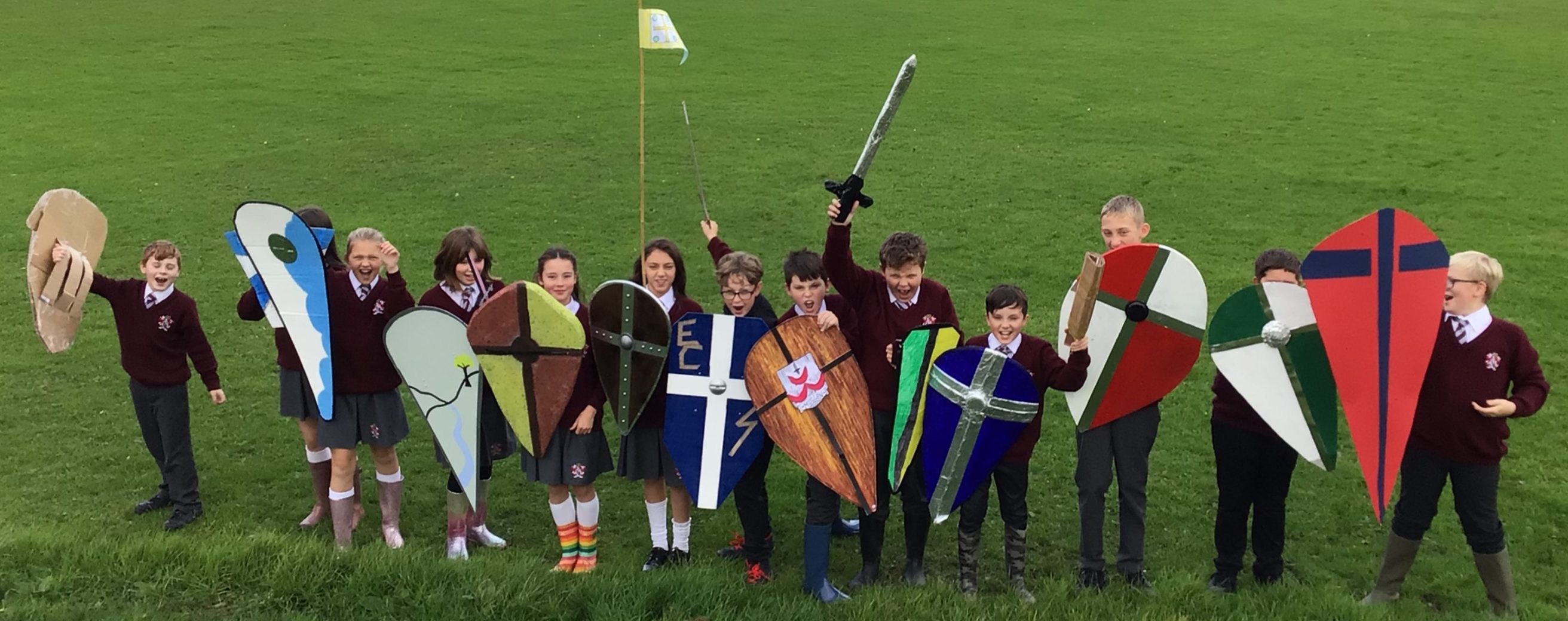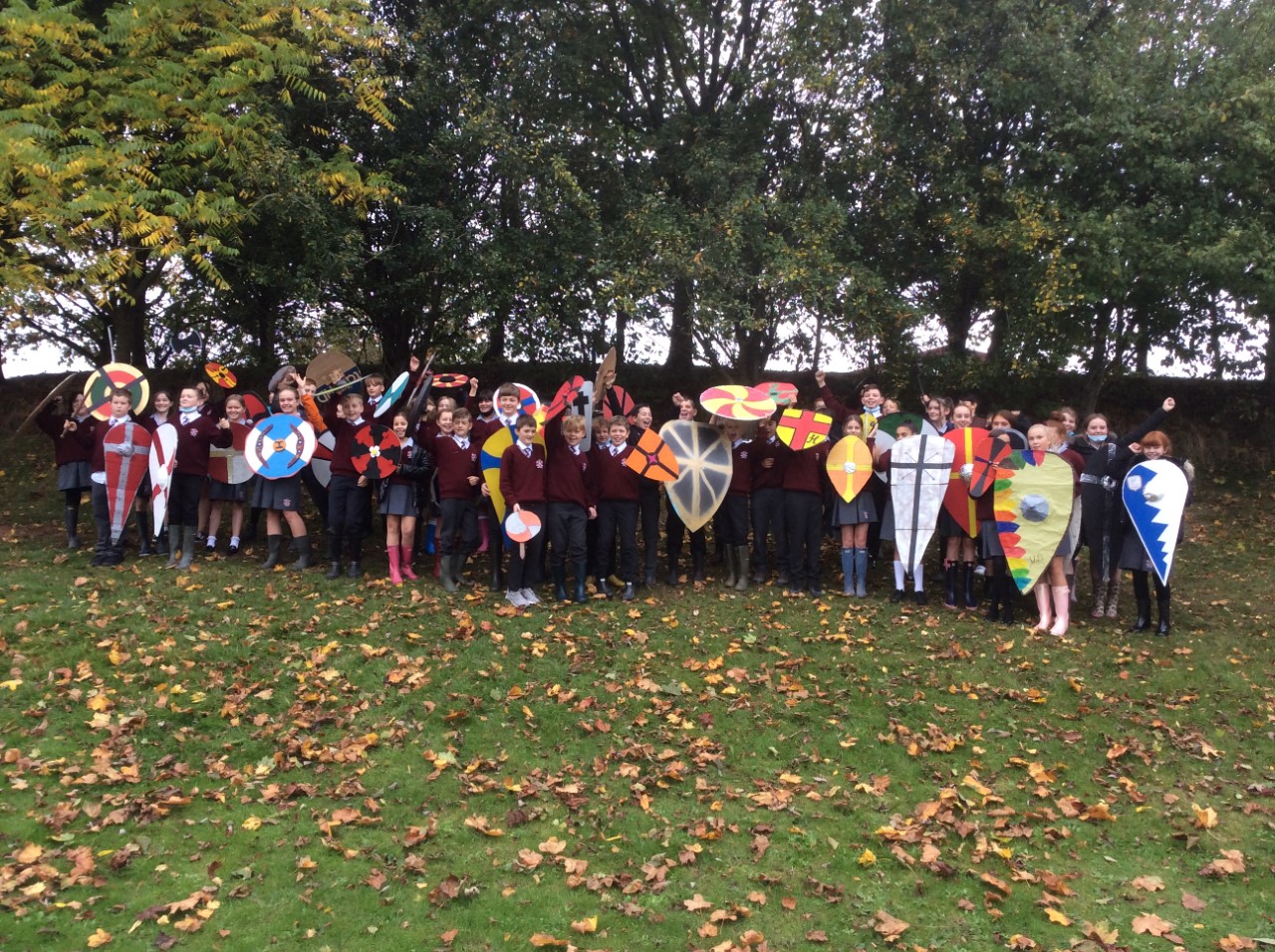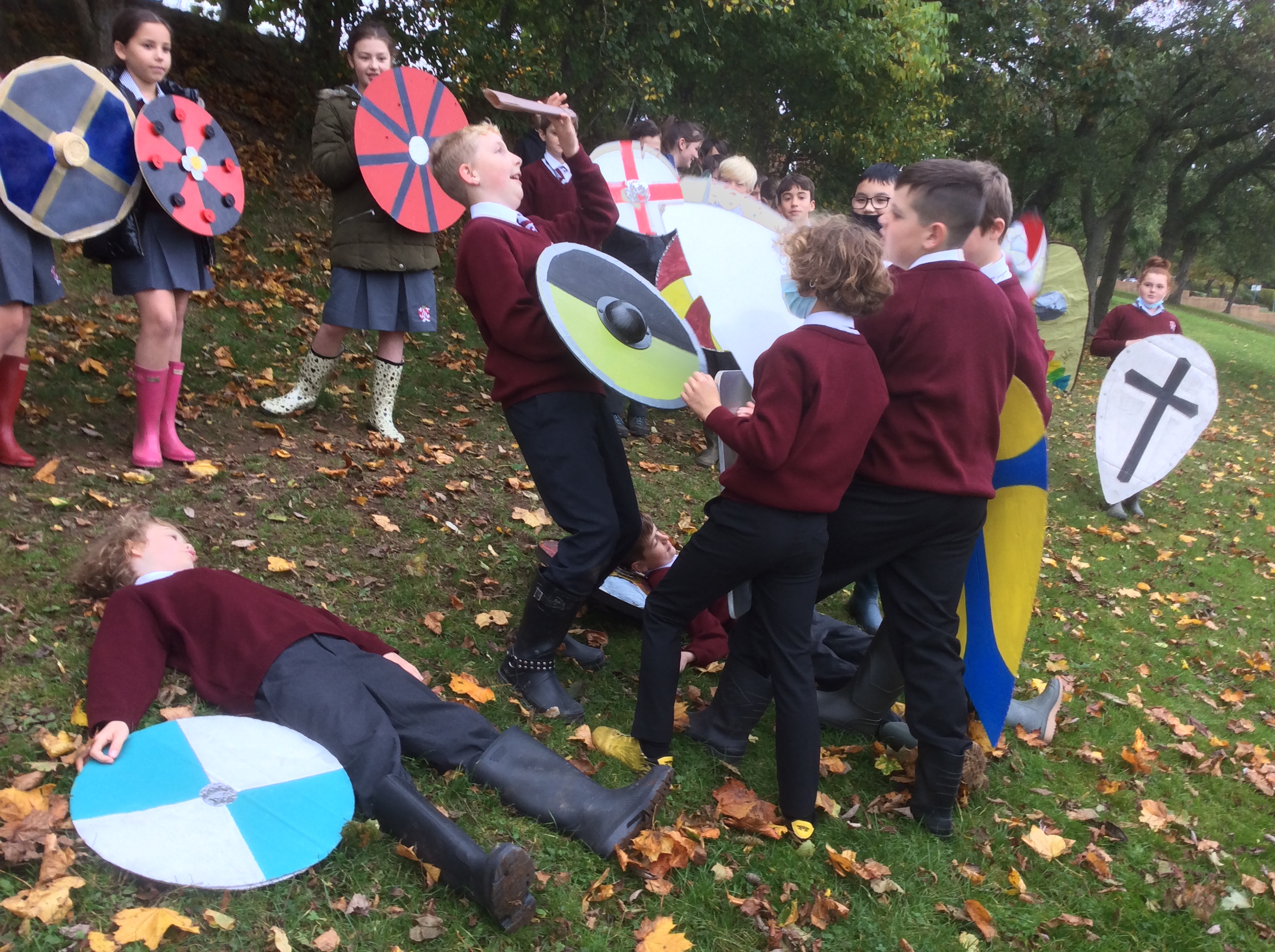History
“Study the past if you would define the future”
Confucius, Chinese philosopher 551BC-479BC
The History Department is committed to fulfilling the School’s mission statement:
- We aspire to be a school where life is lived in “all its fullness” (John 10:10).
- We believe in the God-given potential of every one of our students.
- We succeed by working together as a school where all can thrive and where excellence is valued.
The History department is driven by a desire to inspire student’s curiosity to know more about the past and to foster a life-long interest in History.
The department is focused on providing a high-quality History education that helps students gain a coherent knowledge and understanding of Britain’s past and that of the wider World.
This knowledge and understanding, together with developing historical skills: asking perceptive questions, thinking critically, collating and evaluating evidence and writing discursively, help to equip Saint Aidan’s students to find their place in an ever changing and challenging World
Throughout Key Stages 3 and 4, Saint Aidan’s History department sets itself high standards, to deliver first class History teaching. We believe that all students, in an aspirational and supportive classroom environment have the ability to succeed.
Key Stage 3
Key Stage 3 History offers a broad, balanced and engaging curriculum that enables all students to succeed. We teach to a chronological framework, beginning in 1066, through to World War Two, making links to topics and skills taught in KS2 and equipping students for future success in GCSE History.
In Year 7, we lay the foundations for students to become good historians. We introduce historical skills and new concepts, which are then revisited throughout Year 7. For example, students discover what a historical source is: the different types of sources and how historians use sources. In Year 8, we embed the skills developed in Year 7 and add to these as students begin to evaluate the usefulness of sources. In Year 9, students begin to look at interpretations in History, as preparation for GCSE History.
Throughout Key Stage 3, we put great emphasis on developing literacy skills, especially reading for understanding, comprehension skills and extended writing. We know that supporting literacy is key to unlocking student progress in History as well as a vital life skill.
Success for all students means access for all. The History department supports the needs of all students. Teaching and learning resources are created to support the learning needs of every student.
Year 7 Curriculum: Key Questions
- Why was 1066 an important year in British History?
- What impact did Norman rule have on Britain?
- What was life like in Medieval Britain?
- How religious were Medieval people?
- Who rules? Power to the people or power to the Crown?
Year 8 Curriculum: Key Questions
- What do Contemporary Sources reveal about Queen Elizabeth I?
- What about ‘Her’ story?
- Why did England go to war in 1642?
- What was the Transatlantic Slave Trade?
- Rulers and the Ruled. What was the impact of the British Empire?
- What was the impact of the Industrial Revolution? Working lives, home lives, protest and reform
Year 9 Curriculum: Key Questions
- Why did Europe go to war in 1914?
- What was the impact of the First World War?
- Post-war Europe: Peace, problems and conflict?
Key Stage 4
GCSE History students study the Edexcel History syllabus.
Details of the specification can be found at:
Throughout their GCSE History studies students focus on:
- Developing and extending their knowledge and understanding of specified key events, periods and societies in local, British, and wider world history; and of the wide diversity of human experience
- Engaging in historical enquiry to develop as independent learners and as critical and reflective thinkers
- Developing their ability to ask relevant questions about the past, to investigate issues critically and to make valid historical judgements by using a range of sources in their historical context
- Developing an awareness of why people, events and developments have been accorded historical significance and how and why different interpretations have been constructed about them
- Organising and communicating their historical knowledge and understanding in different ways and reach substantiated conclusions.
Students are supported throughout their GCSE History studies. The department has produced in-house knowledge and understanding booklets for every unit taught, as well as revision booklets and knowledge organisers.
As the focus in the three exam papers is on essay-writing students of all abilities are supported in developing their essay planning and writing skills, a process that begins in KS3. The department prides itself on the quality of the written and oral feedback given to students. All students know ‘what went well’ and how they can improve- ‘even better if’, again a process which begins in KS3.
Students struggling with complex topics, those underachieving and students simply in need of a confidence boost are encouraged to attend lunchtime help sessions and revision classes prior to exams. ‘GCSE Film Club’ offers students a chance to enhance their knowledge and understanding of the First World War, the American West and Nazi Germany- and no reading and writing is required!
Paper 1: 1 hour 15 minutes (30% of the final GCSE grade)
Topics examined
Section A: British Sector of the Western Front:
Injuries, treatments and the trenches
Section B: Medicine c1250-present day
Paper 2: 1 hour 45 minutes (40% of the final grade)
Topics examined
Section A: Anglo-Saxon and Norman England, c1060-c1088
Section B: The American West, c1835-c1895
Paper 3: 1 hour 20 minutes (30% of the final GCSE grade)
Topic examined
Weimar and Nazi Germany 1918-39
Enrichment
The department aims to encourage and develop students’ interest and enjoyment in History. The department has organised a visit to the battlefields of the First World War for students studying GCSE History and hope to be able to offer this educational visit in the future. Local History is a key part of Key Stage 3. For example, Year 9 students study their local war memorial, finding out the role of local communities in creating the memorial and the vital role played by local men who served in both World Wars.
The GCSE History Film Club regularly shows films and documentaries linked to the topics studied in GCSE. In Key Stage 3, students are encouraged to join the History Club and we have plans to develop and publish a Saint Aidan’s History newsletter, a collaboration between students in Key Stage 3 and 4.
Assessment and homework
Regular assessment is an intrinsic part of Key Stage 3 and 4 History. Students are assessed part way through units via knowledge and understanding essays, quick knowledge and glossary tests and skills based source questions. This allows teachers to determine what students know, understand and can do. This also allows teachers to identify and address any misunderstandings, gaps in their knowledge and skills before students’ complete end each of unit exams, which assess students’ knowledge, understanding and skills.
Students in Key Stage 3 and 4 are set regular homework. The purpose of homework is to consolidate and extend students’ knowledge, understanding and historical skills. The department endeavours to make homework meaningful and engaging. For example. In Year 9, students’ complete a local History project researching their local war memorial. This is part of their study on the First World War. Homework assignments like the ‘Fallen Heroes’ project, encourages students to research, work independently, manage their time and organise their information, key skills in KS3 and vital to success in KS4.
Department Staff
| Miss J Nicholls | Head of Department |
| Mr S Wood | History Teacher |
| Mr A Lord | History Teacher, Deputy Headteacher |



